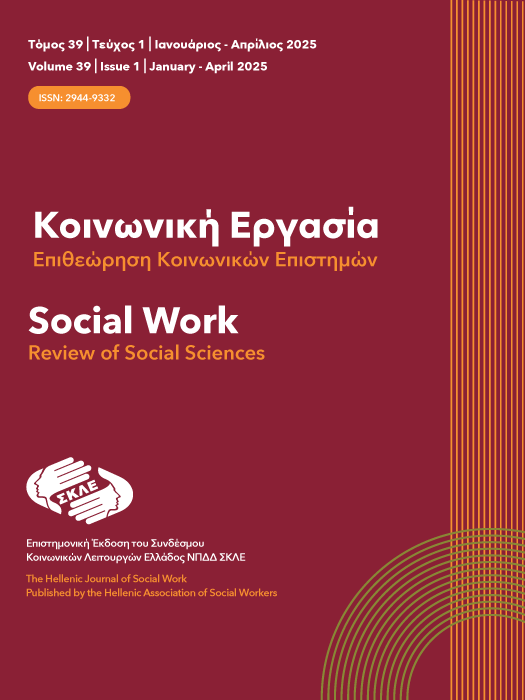Ecofeminism and social work in the post-anthropocentric era. Common considerations and approaches
Abstract
This article examines the theory of ecofeminism and its relations with current approaches to social work in the context of a post-human-centred view of the world. Beginning with the historical context and theoretical background that influenced the development and formation of the concept of “ecofeminism”, the term is situated in contemporary reality as a philosophical perspective, socio-political practice, and theoretical tool for thinking about and understanding contemporary social and environmental problems. The article explores similarities, common principles, and approaches with contemporary social work and recommends the application of intersectionality as a key methodological tool for critical thinking of ecofeminist theory in social work practice. It also suggests integrating the ecofeminist approach in social work education and professional practice at the micro-, meso-, and macro-levels. Finally, it provides some examples of applying the ecofeminist perspective to community social work in urban settings.
Article Details
- How to Cite
-
Papouli, E., Syropoulou, D., & Kyriazi, E. (2025). Ecofeminism and social work in the post-anthropocentric era. Common considerations and approaches . Social Work. Review of Social Sciences, 39(1), 3–20. https://doi.org/10.12681/socialwork-rss.40649
- Section
- Article

This work is licensed under a Creative Commons Attribution-NonCommercial-ShareAlike 4.0 International License.



